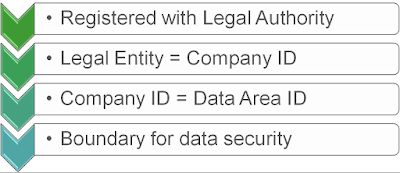[Don't] Look me in the eyes: Rethinking respect without eye contact
In a world filled with social norms and unwritten rules, there's one phrase that often raises eyebrows: "Look me in the eyes." It's commonly perceived as a sign of respect, but is it really? This blog aims to challenge the conventional belief that eye contact is the ultimate measure of showing respect. After all, how can a blind person "look you in the eye"?
The Debate:
At a recent conference, I found myself engaged in a thought-provoking debate with a mother of children who staunchly defended the importance of making eye contact. She insisted that this gesture was non-negotiable in her world, as it symbolized respect. I couldn't help but question this widely held belief. I argued that what one likely truly means when demanding eye contact is a desire for another person's undivided attention. I shared my perspective, contending that forcing anyone, regardless of neurodivergence or personal comfort, to meet this social expectation felt counterproductive.
Social Norms and Uncomfortable Realities:
Our exchange at the conference shed light on how deeply ingrained the idea of eye contact as the gold standard of respect is in our society. Even as someone who isn't blind, I confessed that adhering to this norm often left me feeling uncomfortable and drained. I think this is pretty common for the neurodivergent population, but I obviously can't speak for all of them. It made me wonder: How did we arrive at a point where something as personal and nuanced as comfort was overridden by a one-size-fits-all social convention?
Defining Respect:
Respect is a multifaceted concept that encompasses more than just the physical act of making eye contact. It's about acknowledgment, active listening, and demonstrating empathy. My belief is that blind individuals, just like anyone else, are fully capable of showing respect through alternative means, and that respect should be adaptable to individual needs and preferences.
Alternative Ways to Show Respect:
As we reconsider what it means to show respect, it becomes evident that there are countless alternative methods beyond eye contact. Active listening, for instance, is a powerful way to convey respect. When we genuinely engage with someone's words and thoughts, we communicate that their perspective matters. Sharing your full attention through meaningful verbal communication is equally important, as it demonstrates a willingness to connect on a deeper level. Let's explore these alternative avenues for showing respect in practice.
Receiving and Noticing Respect:
Recognizing and appreciating respect from others can sometimes be more subtle and complex than a direct gaze. True respect reveals itself in actions, in tone, in the words chosen, and in the willingness to understand another's point of view. It's not confined to the visual realm but extends into the realm of empathy, kindness, and thoughtfulness. When I think about the people I respect the most, what comes top of mind for me is a sense of equality, welcoming, and appreciation. When I show respect to others, even if I appear to be looking you in the eyes, I assure you, I'm likely not. Instead I'll listen intently, with other body language. For example, nodding, leaning in, putting my devices down, or even verbal confirmation of my listening. If I respect you, I might challenge your thought process, but in a non hurtful way (I hope).
In conclusion, let's challenge the status quo and question the phrase "Look me in the eyes" as the ultimate measure of respect. Instead, let's replace it with more inclusive and effective ways to convey and receive respect. Our society can benefit greatly from reevaluating these norms, fostering understanding, and promoting empathy in all human interactions. Are you ready to join this conversation and embrace a more inclusive and diverse perspective on respect? Comment and share how you show respect. I think there are lots of ways and no right or wrong answers, so I encourage you all to share, after all, that's how we grow and learn.



Comments
Post a Comment